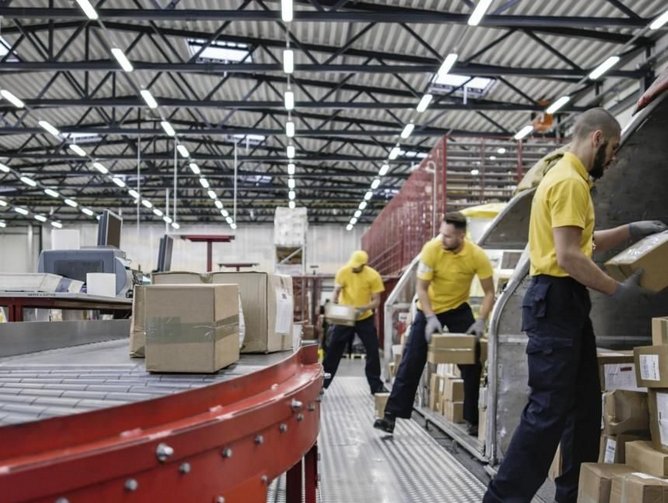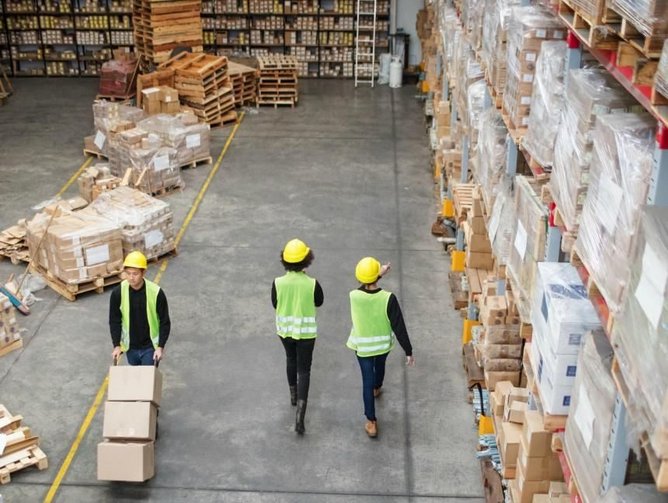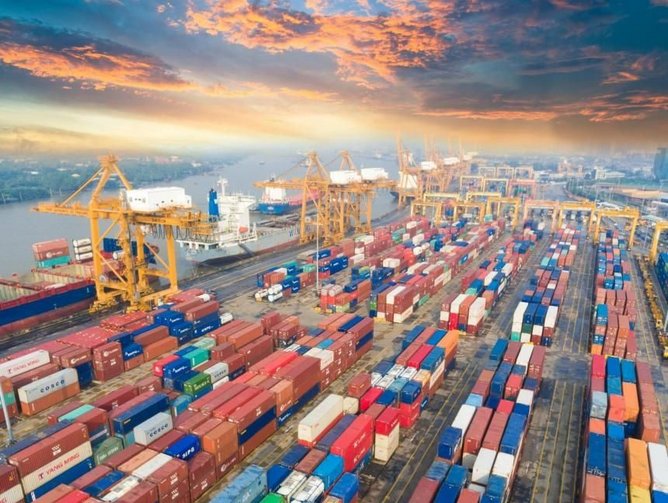GEODIS: embracing new technology to accelerate operations in the logistics industry
As businesses across the globe are impacted by digital transformation, companies in a diverse range of industries are tasked with undergoing a technological change in order to accelerate processes. Phillipe Mahler, Chief Procurement Officer (CPO) of freight transportation and logistics firm GEODIS, understands the importance of embracing technology in a bid to ease operations.
Since first joining GEODIS in January 2010 as High-Tech Key Accounts Director, Mahler worked in a variety of different roles, such as Corporate Market Director and Transformation Director, before moving into his current position as CPO in early 2013. Split into five different lines of business, GEODIS’ operations include Freight Forwarding, Distribution and Express, Road Transport, Contract Logistics and Supply Chain Optimisation (SCO) which manages its customers’ supply chain by offering end-to-end solutions, enabled by the company’s processes, systems, infrastructure and personnel. Heading up the operations and procurement division, Mahler recognises the value of utilising his experience in supply chain to help him succeed in his current role. “My previous experience has allowed me to better understand the key drivers of the supply chain. After you’ve dealt with several customers and experienced different situations, you can take the time to innovate and begin to understand where the key areas are. I manage these key points very carefully because they’re either the points which are going to create difficulties in operations or the points which you can leverage to create value,” he says. “Our mission is to solve and assemble resources, capabilities and technologies, and to better design the supply chain on behalf of our customers. We buy services, resources and technologies from the market and from our sister lines of business or from any other logistics service provider. We assemble these solutions to create an end to end network for our customers.”
With the procurement function transforming on an ongoing basis, Mahler reflects how GEODIS is changing the way it conducts its business to coincide with the latest industry trends. “On an increasing basis, procurement is becoming more of a science that is based on data. It's based on being capable of forecasting what's going to happen in the next six months to two years. Forecasting is taking the data from the past and then leveraging all the data announcing the trends and looking at how the world will change,” he explains. “I believe one of the biggest challenges is transitioning from human negotiation into a business which scientifically predicts where you should go. It’s a huge challenge; it's the leveraging of Big Data.”
Introducing technology
With technology enabling GEODIS to make its processes simpler, Mahler reflects on how the procurement process has been transformed by digitalisation. “In the past, procurement was a question of understanding where the data was and then deciding at what price it could be bought from the market. It’s always been a question of simulation and has all been done manually using Excel,” he says. “These days, we’re able to capture much more data because it's all in one place and technology has allowed us to use machines that help us make decisions. Using the machine, you can do a ‘what if’ in a machine scenario which helps decide where you want to go and how you want to execute the processes.”
With innovation considered a key priority at GEODIS, Mahler understands the importance of ensuring technology is adopted for a specific purpose that will benefit the company’s operations – and is not merely implemented for its own sake. “When we want to utilise new technology, the first thing I always do is to have a discussion with a group of key users of the current platform and we conduct an evaluation. We have to ask ourselves what we can do with this current machine and how we can implement new technology that will enhance what we already have,” explains Mahler. “We have to establish an immediate need and ask ourselves that if we use this technology, will it bring us value today, tomorrow or in the future? It’s important to think about where we want to be in two years’ time and understand how what we’re doing now will fit into that. When you have an immediate value, you have future potential value and, based on these two results, we’ll then make a decision whether we want to adopt this technology.”
GEODIS has been recognised as a ‘Leader’ by information technology research and advisory firm Gartner in its May 2018 Magic Quadrant for Third-Party Logistics (3PL) worldwide, which evaluates third-party logistics providers’ ability to be a preferred global provider. With the company conducting business in the US, India and Haiti, technology has enabled each individual team to communicate immediately and has allowed daily operations to be sped up significantly.
Forming key partnerships
In order to achieve mutual success, GEODIS has formed over 500 global partnerships. In particular, the firm has established a key relationship with the Commercial Relocation Network (CRN). “Our collaboration with CRN has granted us access to specialists everywhere in the US. Be it in California, Arkansas, Seattle, New York or Miami, we have access to people who really know our business and know what our specifics are – it’s very valuable to us,” says Mahler. “In general, we have lots of partners. Some are very local, while some are global and are capable of carrying goods from Singapore to Mexico. We really have all sizes of partnership.”
The importance of establishing significant relationships with other companies to achieve mutual success is therefore considered a top priority at GEODIS. “Due to the way we operate our procurement activity, we've started to move away from the customer/supplier relationship. We don’t think ‘I'm your customer so you go and execute.’ Or ’I'm your supplier so you pay or I don't execute’. Those days are gone,” he says. “Before beginning a partnership, it’s important to trust each other. You need to accept some level of transparency on the cost and what's possible, as well as deciding what can and can’t be optimised. Once you’re there, you're in a relationship which is completely different from a typical, traditional customer relationship because you’re together in the same boat, facing the same challenges and are both trying to create value for each company, as well as seeking the best result for the final customer.”
Future plans
Looking to the future, Mahler is aiming to ensure GEODIS continues to lead the way and set trends in order to stay ahead of the competition. “We’re passionate about our business, have proven experience and possess a truly global presence. I believe those three things are what make us different from our rivals. It’s vital to have the best people working for us and investing in people is something we rank very highly at our company. We’re always on the lookout for new talent, as well as retaining what we already have through providing our staff with the opportunity to progress, change position or relocate to another part of the world. Innovation, technology and the people are considered our three key pillars,” he says. “At SCO we benchmark our solutions, approach and IT tools, and consistently look at the external world to understand what's coming. Adapting is a word from the past. When you adapt, you’re already a follower. We don't want to be followers; we want to be the leaders.”





